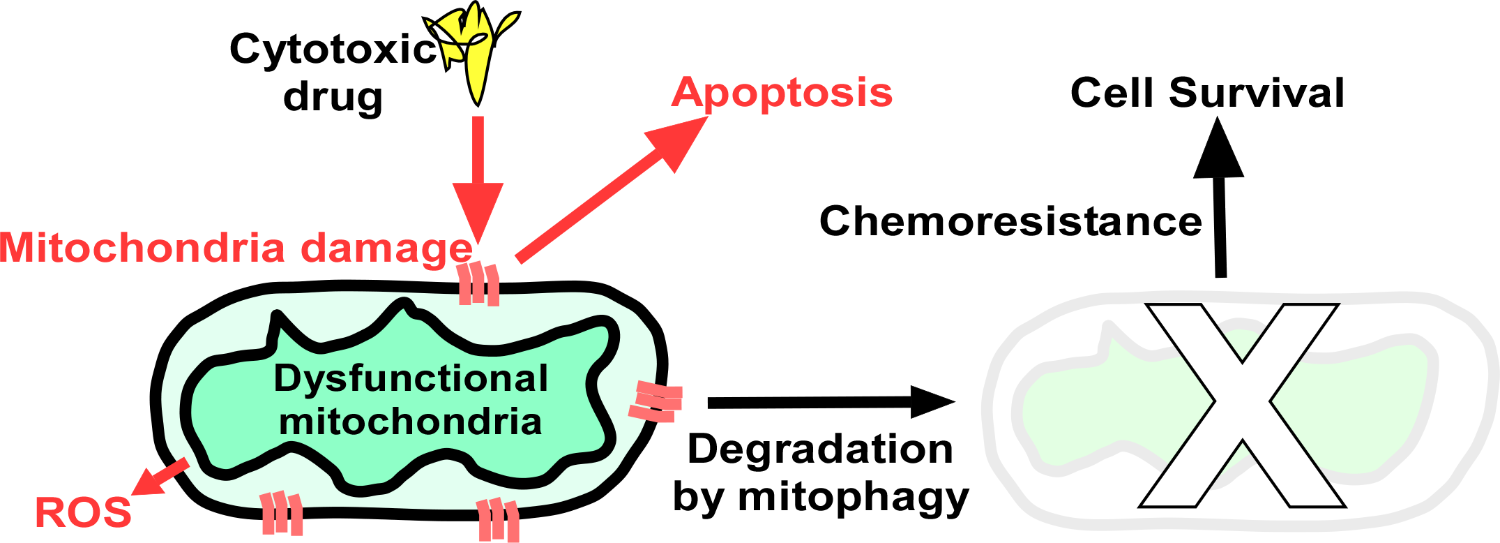Mitophagy Mechanisms in Cancer Drug Resistance
 Schematic representation of events after drug treatment. Mitochondrial damage often leads to apoptosis. Cancer cells upregulate mitophagy to ensure survival and chemoresistance.
Schematic representation of events after drug treatment. Mitochondrial damage often leads to apoptosis. Cancer cells upregulate mitophagy to ensure survival and chemoresistance.Cancer drug resistance has greatly limited the effectiveness of cancer treatment. Most cancer drugs target the mitochondria to induce apoptosis. It is becoming clear that the ability of cancer cells to degrade these damaged mitochondria by autophagy, a process known as mitophagy, contributes to drug resistance. Thus, targeting mitophagy in combination with existing drugs will undoubtedly increase the efficacy of treatment regimes. How these cancer drugs induce mitophagy and the type and mechanism of mitophagy responsible for drug resistance is largely unknown. We aim to fill this huge knowledge gap by unravelling the mechanisms of drug-induced mitophagy during drug resistance. We will study gemcitabine and cisplatin, two widely used DNA-damaging drugs used in combination treatments for a number of advanced cancers, including metastatic breast- and pancreatic cancer. Both these drugs induce mitophagy. We will combine focused CRISPR/Cas9-based screens with fluorescence and electron microscopy imaging modalities, including live cell super resolution microscopy, with proteomics and other biochemical methods to identify the factors and unravel the mechanisms of drug-induced mitophagy. We will collaborate with international leading research groups with knowledge and expertise that is complementary to ours. This project will provide important knowledge for developing therapy targeting mitophagy in combination with existing drugs to increase the effectiveness of advanced and metastatic cancer treatments.